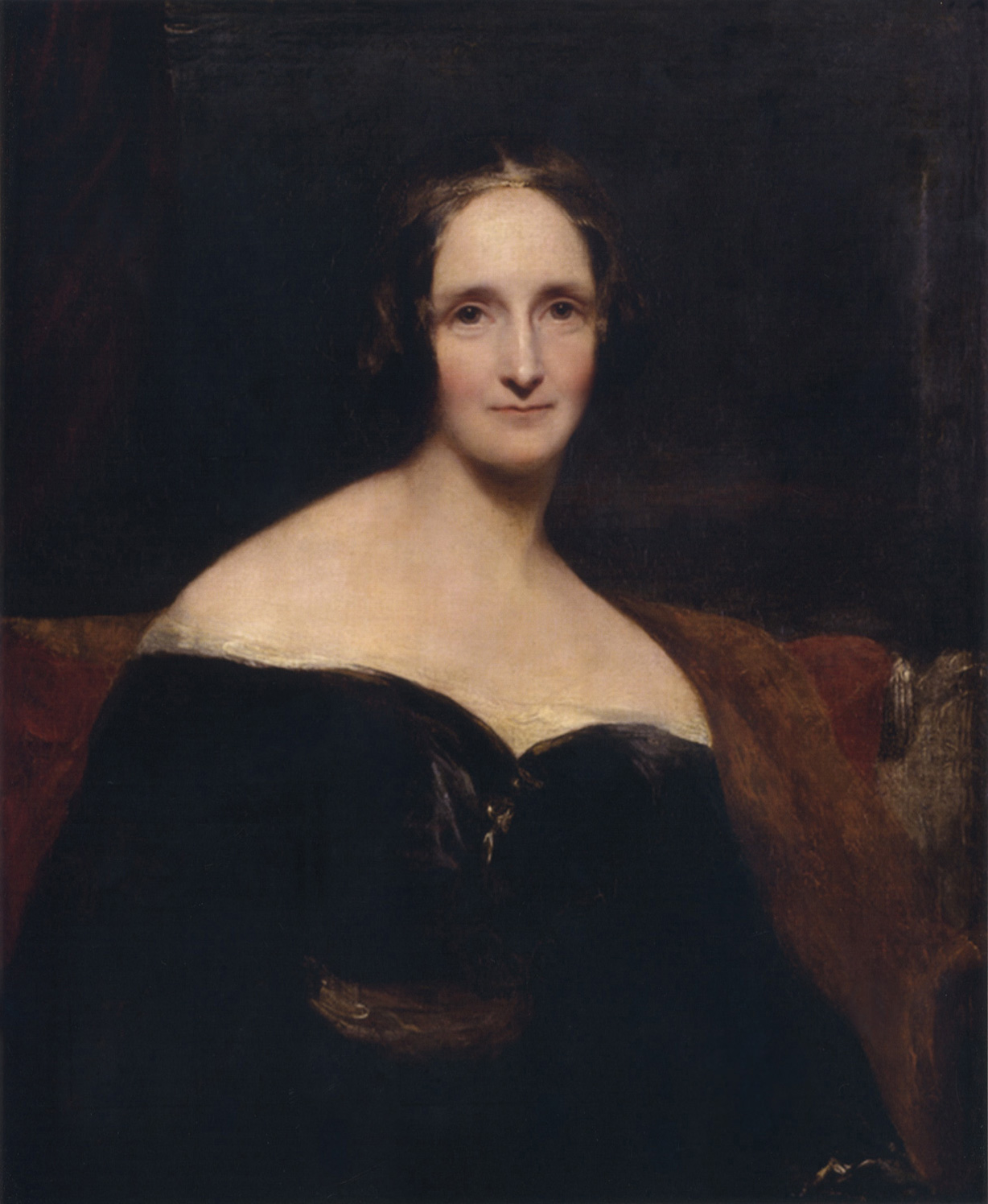 |
| Mary Shelley |
Mary Wollstonecraft Shelley was born on August 30, 1797. Her mother passed away eleven days after she was born. Her father eventually remarried and Mary grew up with her siblings, her father, her stepmother and her stepsiblings. She was mainly home schooled, but she was influenced greatly by her father and his intellectual friends, who were among some of the best thinkers of the time. Presumably under their tutelage, Mary published her first poem when she was only ten years old.
In 1814 at the age of sixteen, Mary ran away with the man who was the love of her life, Percy Bysshe Shelly. Percy was married at the time, but both of the lovers were impetuous and romantic. Mary went on to write a book about their impromptu trip together called "History of a Six Weeks Tour." She soon became pregnant with Percy’s child. She lost the child and two more, but the couple did go on to produce a son together.
In 1816 Percy’s wife committed suicide and then Mary and Percy married on December 30, of the same year. Two years later, in 1818, Mary Shelley published her greatest work, the timeless classic, "Frankenstein." In 1822 Percy Bysshe Shelley died in a drowning accident while going to visit with friends. After his death, Mary published several novels, but none were as popular as "Frankenstein." She died in her home in London on February 1, 1851.
.jpg) |
| Emily Dickinson |
Emily Dickinson was born on December 10, 1830 in Amherst, Massachusetts. Emily’s father was a lawyer and worked as the treasurer at Amherst College. He was also very active in politics. Emily was a bright young girl and by all accounts was witty, but shy. She had a normal childhood and traveled when necessary. She also attended Amherst College for a short time before having to drop out due to an illness.
Despite her normal upbringing and relatively active childhood, Emily slowly became a recluse after her time in college. She was rarely seen out of her house later in her life. However, she did manage to form and maintain close bonds with her friends through letters. Her works actually seem to have been improved by her self-imposed confinement. She was a prolific poet and her works spoke very authoritatively on matters such as love, death and suffering.
Emily lived in her parents' home up until her death. She never married or had children. In fact, it seems that she never had a romantic relationship at all. She died in 1886, at the age of eighty-six. It was only then that the true extent of Emily’s talent was revealed. During her life, she had only revealed a scant few of her poems to her closest friends and family. Upon her death, her sister discovered that Emily had written close to two thousand poems.
.jpg) |
| Jane Austen |
Jane Austen was born in England on December 16, 1775. She was one of eight children. At the age of eight, Jane went to a boarding school, where she received her formal education. However, most of her knowledge and inspiration for her work came from her family and her father’s library. Jane came from a very loving and close family that encouraged her writing and extensive reading very much. She would write poems, plays and stories that she would read to her family or enact with them.
In 1795 an event occurred that was likely the inspiration for many of Jane’s future novels. Jane Austen met Tom Lefroy. The pair fell in love with each other, but their union was frowned upon by Tom’s family, which was paying for his schooling and thought the match below him. They sent Tom away and the pair never saw each other again. Four years later, Jane published a novel that she called “First Impressions.” This masterpiece would later become known as "Pride and Prejudice." There are many similarities between this story and Jane’s life, but there is one major difference, the couple lives happily ever after.
Jane went on to publish a handful of novels in her lifetime, all of which met with success. They also shared a common theme, couples that married for love and not for money. Jane must have decided that she herself would never marry without love. She remained single for the rest of her life after losing Tom, and died at the age of forty-two at her home in Winchester, England.
Sources
Jane Austen Biography, retrieved 9/5/09, janeausten.org/jane-austen-biography.asp
Biography of Emily Dickinson, from Michael Myers, Thinking and Writing about Literature, 138-42, retrieved 9/5/09, vcu.edu/angweb/eng384/amilybio.htm
Mary Wollstonecraft Shelley, retrieved 9/5/09, english.upenn.edu/Projects/knarf/MShelley/bio.html